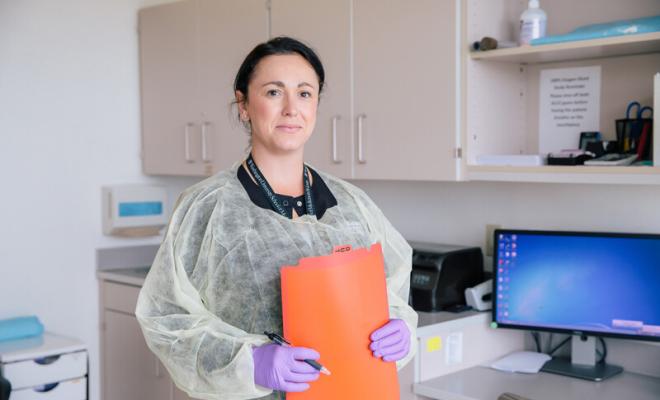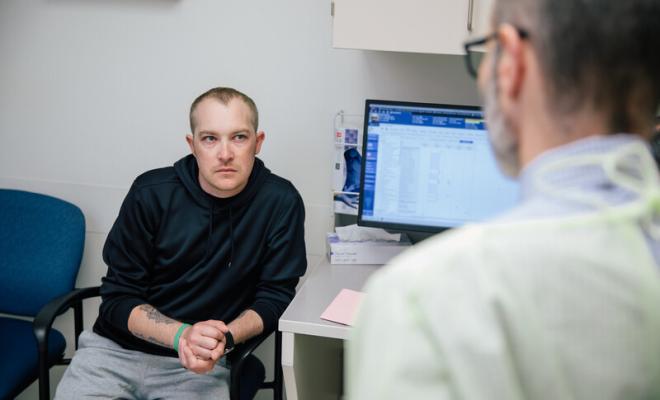Getting a second opinion is strongly encouraged if you are not approved for listing at your first transplant center. It is possible that another transplant center may make a different determination and accept you as a transplant candidate. The Cystic Fibrosis Foundation lung transplant referral guidelines recommend that you consult with at least two transplant centers — including one that has experience with your specific barriers or contraindications — before determining that you are ineligible for a lung transplant. Sometimes, a phone call from your CF doctor to another transplant center (“consultation” by phone) can be enough to determine whether you might be an acceptable candidate at the other center.
If you are being considered at a different center, you will be asked to meet with the members of the second transplant team to undergo an evaluation. In some cases, you may need to repeat testing at the second center, but this decision is made by the evaluating transplant center and will vary from center to center. In addition, your insurance may not cover the costs of additional testing.
If You Decide Not to Pursue Transplant
You may decide that you do not want to move forward with the lung transplant process. There is nothing wrong with choosing this path. If you do decide to forgo lung transplantation, you will work with your CF care team to optimize your quality of life and develop a care plan that aligns with your personal goals.
You may decide at any point before your transplant that you do not want to go through with it. The only point at which it is too late to change your mind is after the transplant is done.
”The final deterrent for new lungs was how going through the whole process and learning about the requirements of qualifying for transplant made me feel. I went to bed stressed and woke up stressed as well. I was miserable until I made my decision.” — Randal Haller, adult with CF from the CF Community Blog
If you do not move forward with a transplant, it is important to discuss your wishes with your loved ones so that they can ensure that your wishes are honored. Support services may be available to assist you and your family when you need them. Many of these services require insurance coverage.
- Home health aides may help with activities of daily living, household tasks, and medical or surgical management.
- Palliative care can help improve your overall quality of life with the relief of pain, physical stress, and emotional stress.
- Hospice care services can help you manage pain and anxiety and remain as comfortable as possible.
- You may want to consider creating an advance directive. This will allow you to declare legally what kind of end-of-life care you want if you become unable to express your wishes.
Your CF care team and the CF Foundation are here to support you. Bring questions to your CF care team, or call CF Foundation Compass. Compass is a personalized service that can help you understand insurance coverage, find financial resources, and help with other challenges. You can contact Compass at 844-COMPASS (844-266-7277) or compass@cff.org.

